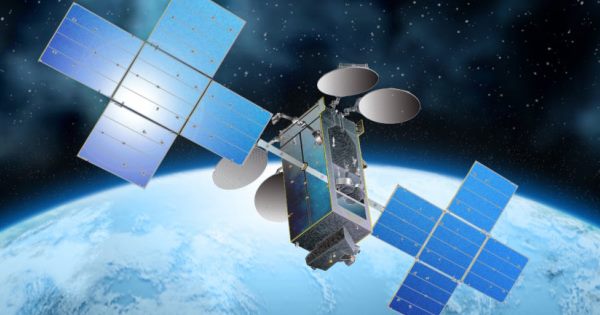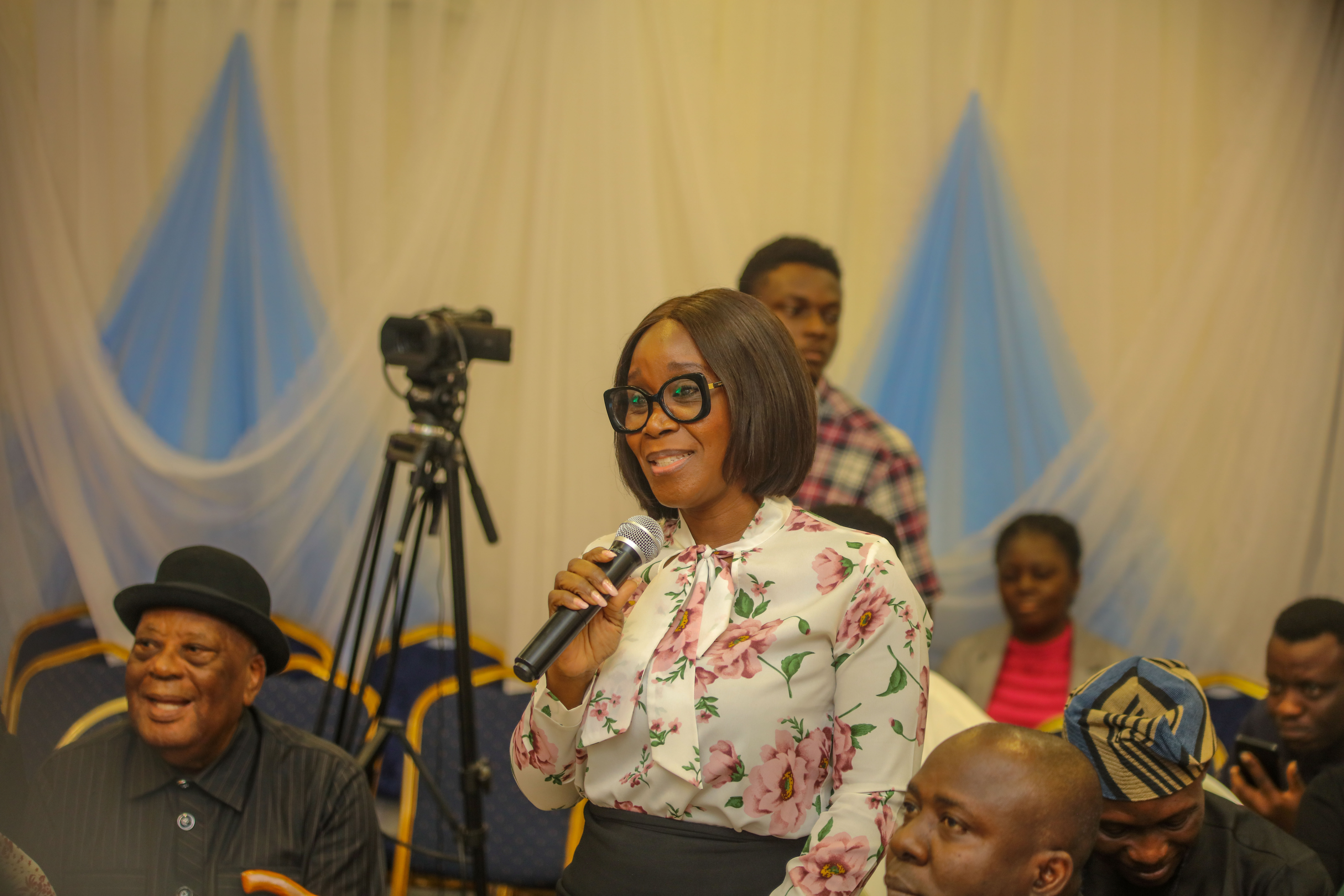Telecom
Grace Sustaining Nigeria’s Satellite in Orbit- NASRDA

Halilu Shaba, director-general, National Space Research and Development Agency (NASRDA), has said that Nigeria’s satellite expired 3 years ago but still functioning by ”grace”.

This is coming after a similar revelation by Space in Africa, that NigeriaSat-1, NigComSat-1, and EduSat-1 – three Nigerian satellites are no longer in orbit.
But speaking in an interview on Channels Television, Shaba, said the satellite expired in 2018 and that Nigeria has only one satellite and that it is not enough to serve the country and is only gibing necessary data based on ‘Grace’
Shaba said the satellite was installed in 2011 and should have been changed because it has a seven-year life span.
“We have only one satellite (built in 2011). It has a seven-year life span and the life span is supposed to have expired in 2018. In our culture of satellite industries, you build a new satellite that is supposed to have replaced that one before you; we have not done that,” Shaba said.
“We are living on grace because normally based on the fuel of the satellite, you imagine that it is going to last for seven years but since 2018, the satellite has been functional and it is still giving us the necessary data.”
Shaba said though having more than one satellites and changing the old one is a priority, the country’s dwindling resources have made it difficult to achieve that.
Only recently, Space in Africa which produces authoritative business and market analysis reports for the African Space and Satellite Industry segments, reported that NigeriaSat-1, NigComSat-1, and EduSat-1 – three Nigerian satellite are no longer in orbit.
Space in Africa reported that only NigComSat-1R, a communications satellite, NigeriaSat-2 and NigeriaSat-X, an Earth observation satellites, are still active.
The report “Replacing Nigerian Satellite Gone Past Design Life; The Journey So Far” authored by Mustapha Iderawumi , said that “Nigeria’s first satellite, NigeriaSat-1, was launched on September 27, 2003, and on August 17, 2011, a replacement, NigeriaSat-2, the most powerful imaging spacecraft ever sent into orbit , was launched.”
The report went on the say that an equivalent satellite, NigeriaSat-X, was co-launched with NigeriaSat-2 at the Yasny military base in Russia
On May 13, 2007, the country’s and Africa’s first communications satellite, NigComsat-1, was launched at an overall cost of USD 300 million. It de-orbited on November 11, 2008, and a replacement, NigComsat-1R, was launched on December 19, 2011.
The cost of both satellites was USD 48.4 million, including launch and insurance. NigeriaSat-1, a satellite built exclusively by the Federal University of Technology Akure, cost the country USD 13 million.
Both NigeriaSat-2 and NigeriaSat-X have a design life of seven years.
In 2014, six years after it has outlived its design life, NigeriaSat-1 was decommissioned by engineers and scientists of the NASRDA, burning up in a controlled re-entry into Earth’s atmosphere.
Nigeria’s EduSat-1 was launched on 3 June 2017. The entire cost of the project, including building and launch, was USD 500,000. EduSat-1 de-orbited on 13 May 2019.
Of Nigeria’s six satellites: NigeriaSat-1, NigComSat-1, and EduSat-1 are no longer in orbit. That leaves three active satellites: NigComSat-1R, a communications satellite, NigeriaSat-2 and NigeriaSat-X, an Earth observation satellites.
The design life of NigeriaSat-2 and NigeriaSat-X ended in 2018, although they are still in orbit and working, but not optimally. The design life of NigComSat-1R will end in 2025.
Nigeria plans for NigeriaSat-3 and NigeriaSAR-1 to replace the two Earth observation satellites, NigeriaSat-2 and NigeriaSat-X, that have outlived their design lives.
Telecom
US Bans Use of WhatsApp on Official Devices over Security Concerns

United States (US) House of Representatives has banned WhatsApp from all official devices as a result of data privacy and security concerns.

Harry Coker, acting national cyber security (ONCD) Director confirmed this via a statement issued on Monday, June 23 stating that WhatsApp’s high risk classification is attributed to the messaging app’s ambiguous data protection policies, inadequate encryption for stored data, and other potential security vulnerabilities.
He stated that staff have since been advised to utilize more secure communication platforms, with recommended alternatives including Microsoft Teams, Apple’s iMessage and FaceTime, Signal, and Amazon’s Wickr.
However, Nick Clegg, president of Global Affairs for Meta, WhatsApp’s parent company, has strongly opposed the ban.
He said, “We disagree with this decision in the strongest possible terms, whatsApp provides a higher level of security than the other approved apps.”
This ban on WhatsApp is not an isolated incident, it follows previous restrictions on other applications, such as TikTok, which was removed from government devices in 2022.
The decision also comes just months after WhatsApp itself confirmed that Israeli spyware firm Paragon Solutions had targeted some of its users, including journalists and civil society figures.
Telecom
MTN Nigeria Receives UN Women Award for Empowering Women Nationwide

MTN Foundation has received accolades from UN Women, the United Nations entity dedicated to gender equality and the empowerment of women.

The recognition, presented during a profile courtesy visit by UN Women representatives to MTN Nigeria’s Head Office in Ikoyi, Lagos, acknowledged the Organisation’s profound contributions to advancing women’s empowerment across the nation.
The UN Women delegation, led by Beatrice Eyong, UN Women Country Representative to Nigeria, commended MTN and its Foundation for their unwavering commitment to fostering an inclusive society where women thrive.
During the presentation, Beatrice Eyong, UN Women Country Representative to Nigeria, expressed profound admiration for MTN’s efforts. “I want to congratulate MTN for all that they have been doing,” Eyong stated, her voice resonating with appreciation. “And I want to congratulate MTN Foundation specifically, because they are leaving things better than they met them especially with their Mother and Child Initiatives.” Her remarks highlighted MTN’s focused impact, suggesting a significant improvement in the landscape of women’s empowerment due to the company’s interventions.
Odunayo Sanya, Executive Director of the MTN Foundation, received the award and further elaborated on the company’s broader commitment to societal upliftment through women’s empowerment. ” Our Y’ellopreneur program targeted at Female entrepreneurs is about creating access for our Female Entrepreneurs – access to skills, capital and markets. Our commitment is to contribute to the success of women – led businesses in Nigeria.
This focus on economic empowerment through skills development directly benefits women seeking to improve their livelihoods. This recognition comes as MTN Nigeria continues to champion various programmes aimed at uplifting women, from promoting gender diversity within its corporate structure to supporting women-led businesses and initiatives.
The company’s alignment with global best practices, including its recent signing on to the United Nations Women Empowerment Principles (WEPs), further solidifies its position as a leader in corporate social responsibility and gender equality advocacy.
The award serves as a testament to MTN Nigeria’s strategic and impactful investments in creating a more equitable future for Nigerian women.
Telecom
15 African Startups Using AI Selected for Google Accelerator Cohort 9

Google today announced the selection of 15 promising tech startups for its Google for Startups Accelerator: Africa Class 9 program. These innovative startups, hailing from Ghana, Ethiopia, Kenya, Nigeria, Rwanda, Senegal, and South Africa, are leveraging artificial intelligence (AI) to address significant challenges across diverse sectors, including fintech, agritech, healthtech, and professional services.

In an era where startups are at the forefront of solving critical challenges across Africa, these innovators often face significant hurdles to scale their operations, particularly in securing essential support, mentorship, and funding. Programs like the Google for Startups Accelerator: Africa play a crucial role in providing these opportunities, enabling tech founders and innovators to amplify their impact. By bringing together Google’s extensive resources, including cutting-edge AI technologies and a global network of experts, the program aims to equip these startups to not only thrive but also lead in addressing both local and global challenges in this AI era.
The selection follows a highly competitive application process that began in April 2025 , drawing nearly 1,500 applications from across the continent. This cohort underscores Google’s deep commitment to fostering Africa’s vibrant tech ecosystem and supporting startups in their growth journey.
“African startups are at the forefront of solving critical challenges across the continent, and their work with AI is truly transformative,” said Folarin Aiyegbusi, Head of Startup Ecosystem, Africa at Google. “This program reflects our belief that AI can be transformative when shaped by those who understand the context deeply. We are incredibly excited to support these founders who are building for impact and helping to shape an inclusive AI ecosystem across Africa.”
Over the next three months, the selected startups will participate in a hybrid accelerator program (June 23rd to August 22nd, 2025). Participants will receive dedicated technical mentorship from experienced Google engineers and industry experts , up to $350,000 in Google Cloud credits , and strategic support in AI implementation, product leadership, and business growth. They will also gain access to a global network of investors, partners, and collaborators, amplifying their reach and impact.
Since its inception in 2018, the Google for Startups Accelerator Africa program has supported 153 startups from 17 African countries. Collectively, these alumni have raised over $300 million in funding and created more than 3,500 jobs. Google has directly contributed $5 million through a combination of equity-free funding and product credits to support these founders.
The Google for Startups Accelerator: Africa Class 9 cohort includes:
AFRIKABAL (Rwanda): A blockchain and AI-powered platform helping farmers, buyers, and logistics firms trade crops securely and transparently.
Apexloads (Kenya): A logistics SaaS platform helping African freight brokers, forwarders, and transporters move cargo faster with verified partners.
E-doc Online (Nigeria): Simplifies compliance and credit checks by analyzing real-time banking data, enabling faster onboarding and smarter lending decisions.
GoNomad (Nigeria): Enables businesses to start and run global entities, and solopreneurs to professionally invoice and get paid globally like a local.
Midddleman (Nigeria): An intelligent sourcing and payment platform helping African businesses import and pay for goods from China faster, safer, and cheaper.
Myltura (Nigeria): An AI-powered digital health platform enabling remote care, test access, and seamless health data management in Africa.
Pastel (Nigeria): Offers Enterprise AI solutions, inc. AI based fraud detection and anti-money laundering solutions to financial institutions in Africa.
Rapid Human AI (South Africa): An end-to-end AI design-thinking platform that turns ideas into code in days, cutting development time by 80%.
Regulon (Ghana): An AI-powered compliance and onboarding platform designed to simplify regulatory processes for businesses across Africa and the EMEA region.
Scandium (Nigeria): An AI Quality Assurance suite that helps teams ship bug-free software faster with end-to-end test automation and test ops tooling.
Shamba Records (Kenya): An AI-powered platform that empowers 50,000+ African farmers with smart credit, market access, and climate-resilient, data-driven agriculture.
Smartel Agri Tech (Rwanda): Helps smallholder farmers in the Global South get ahead of crop pests and diseases early using AI-powered, solar-driven devices and SMS alerts.
TOLBI (Senegal): Leverages AI and satellite imagery to empower sustainable agriculture across Africa, providing precise crop yield forecasts.
YeneHealth (Ethiopia): An AI-driven digital health web, and mobile app streamlining access to affordable, reliable, quality medications & health care services.
Zerone Analytiqs (Ghana): A transformative two-pronged solution to the data scarcity in Africa, We are revolutionizing how data is sourced, analyzed, and utilized for decisions.
For further information and updates, visit the Google Africa Blog or follow @GoogleAfrica on social media.

 Telecom2 days ago
Telecom2 days agoLebara, New Operator Enters Nigerian Telecom Arena, Sells Minutes, Not Airtime

 E-Business2 days ago
E-Business2 days agoOver 7m Streaming Accounts’ Credentials were Leaked in 2024 – Report

 E-Financial2 days ago
E-Financial2 days agoFidelity Bank Uplifts Old People’s Home with Essential Items Donation

 E-Financial2 days ago
E-Financial2 days agoS&P Global Ratings Downgrades Ecobank Nigeria’s Credit Rating to CCC-, Outlook Negative

 General News23 hours ago
General News23 hours agoOpenAI Unveils New AI Agent for Software Developers

 Telecom2 days ago
Telecom2 days agoPIN Pushes for Equitable Digital Governance at World Internet Forum

 Telecom3 days ago
Telecom3 days agoMTN Says New N6.98 USSD Charge Won’t Affect Airtime Recharge

 Telecom23 hours ago
Telecom23 hours ago15 African Startups Using AI Selected for Google Accelerator Cohort 9






















